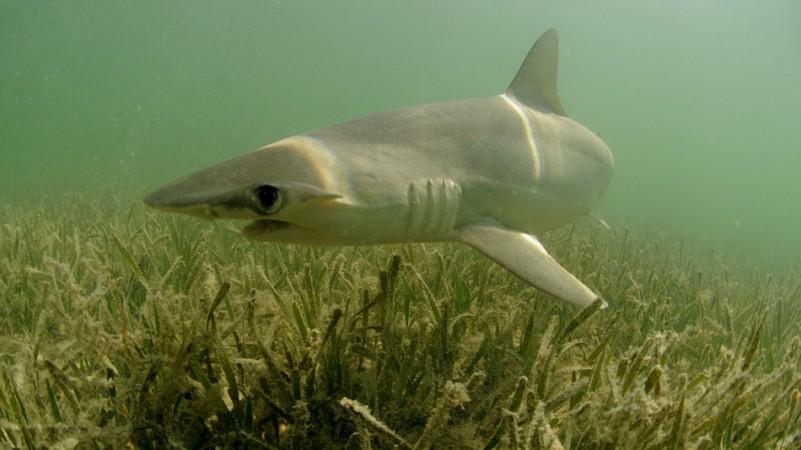
Researchers have identified the world's first ever omnivorous shark, which eats both plants and fishes, and surprised to find it far more intelligent in understanding the marine ecosystem than previously thought.
In a new report by researchers at the University of California-Irvine and Florida International University, the bonnethead shark, which stays in seagrass, off the Atlantic and Gulf of Mexico coasts, was seen to be eating seagrass on different events.
In spite of the fact that co-authors of the study Samantha Leigh, Yannis Papastamatiou, and Donovan German presented their research on the shark's peculiar omnivorous habits at the Society for Integrative and Comparative Biology's yearly gathering in January, the newly found information says that this is the "first species of shark ever to be shown to have an omnivorous digestive strategy," as per the authors.
Researchers knew that bonnethead sharks eat seagrass, they simply weren't exactly certain whether it went through their digestive system unabsorbed, eaten up while eating other fishes. Presently, knowing the sharks do assimilate supplements from the seagrass, the researchers have made it clear that the sharks are omnivorous.
The study which was titled "Seagrass digestion by a notorious 'carnivore,'" was distributed in August in the journal, Proceedings of the Royal Society B.
The sharks' guts were found to contain up to 60 percent plant matter, with a couple of shellfish and mollusks in the blend. The researchers likewise found enzymes that enable the shark to process the seagrass.
As indicated by the study, the impact of omnivores on the dependability of an ecosystem has been bantered by researchers, but it is claimed that omnivorous predators in marine systems have the ability to significantly affect the food chain.
"Understanding how the consumption and digestion habits of bonnethead sharks impact seagrass ecosystems is important as these omnivores may stabilize food web dynamics and even play a role in nutrient redistribution and transport," the study reads.
The effect of a particular species is important to understand as many species are under potential threat of extinction, and understanding their role can provide an altogether new perspective on the matter, apart from the fact that other species are getting extinct due to the direct actions of humans."This is critical to effectively formulating conservation efforts."













